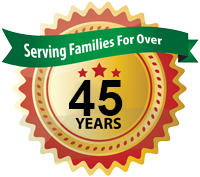Home Care and Sources of Funding
Payment for Home Care Services
The national average cost of a home health aide from an agency is $19 per hour, while a homemaker averages $17 per hour. Rates will vary depending upon where one lives and what agency one chooses. Home care agencies can provide appropriate long term care at a lower cost than a typical nursing facility, especially if it supplements the care of a family caregiver. Because agency rates can vary, it is best to call multiple agencies and get quotes regarding billing and rate structures, such as hourly or shift rates or minimum hourly requirements. Ask agencies if they provide a set fee per visit for a specific care task, such as a bath visit. A regular visit might require a four hour minimum at $18 an hour, but the agency may also provide bath visits. These typically last between 45 minutes and 1.5 hours and might include bathing, dressing and routine daily and personal care for a set fee of $35, for example. It is important to remember, however, that depending on the severity of health problems and the availability of family caregivers, home care may become just as expensive as care at a nursing facility, particularly if around the clock care is needed.
Sources of Home Care Services Funding
Government Resources
- Medicare—The Medicare home care benefit is available to retired individuals who are over the age of 65 and who have worked 10 or more years in a job that contributed to Medicare. The care being provided must be skilled and intermittent. The individual must be homebound while receiving services and under a plan of care by a physician. If the person meets all of these criteria, Medicare will pay for home health care services by nurses and therapists, intermittent home health aide assistance as long as skilled care is in place and 80% of pre-approved durable medical equipment needs.While many older adults count on Medicare to cover their home care needs, the reality is that Medicare will only pay for medically necessary care, usually for a short duration and with significant restrictions. Funding for custodial care often must come from personal resources. The local Area Agency on Aging is a good place to check for any particular programs or services for which an individual might qualify for full funding or sliding scale payments. Sometimes counties have their own home care programs for which your relative may qualify.
- Medicaid—This is a joint federal- state assistance program for low-income individuals. It will cover medically necessary care, long-term care and some other personal and homemaking care at home depending on the situation. Each state has individual requirements and individuals should check with their local Medicaid office.
Insurance
- Health Insurance and managed care organizations will pay for certain home care services, but this varies from plan to plan. Services usually need to be medically necessary or skilled, sometimes pre-approved and may or may not cover general personal care.
- Long-term care insurance is private pay insurance that can assist in reimbursement for home care costs if an individual meets the eligibility criteria in the policy. The insurance must be purchased before it is needed, for example, before long-term care becomes necessary. There are many different plans and it is always prudent to check with your carrier regarding eligibility criteria, deductibles and reimbursement. If you are a child of a senior adult and find you are interested in learning more about these services, let us refer you to a reputable and honest Long Term Care Insurance Agent. Our history of referring to our “Circle of Healthcare Professionals” has been highly commended by our families.



